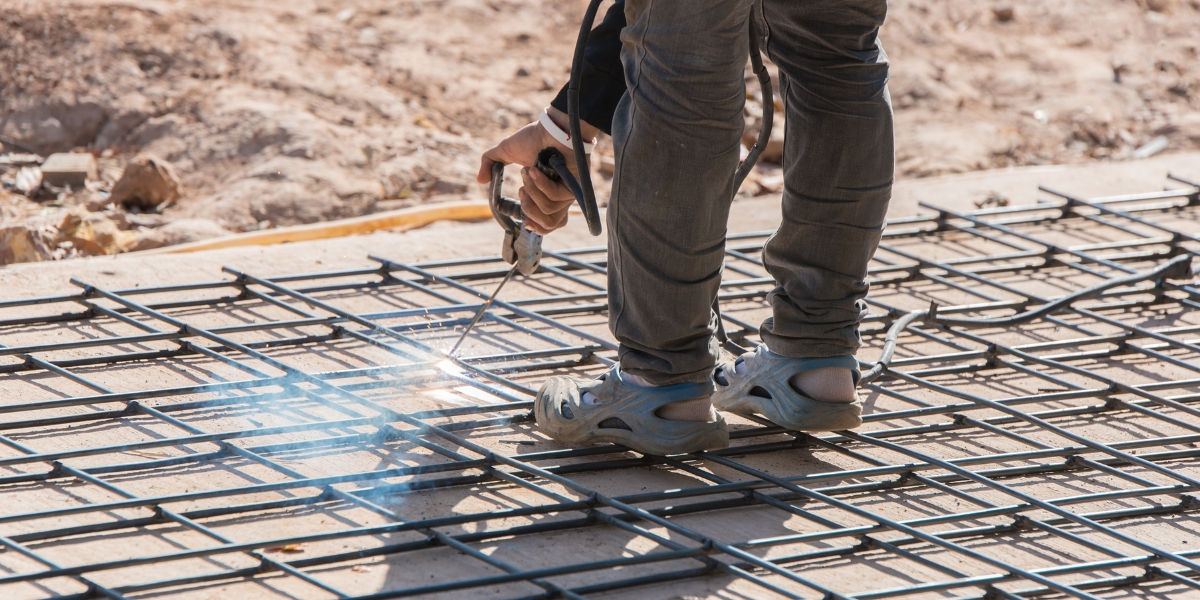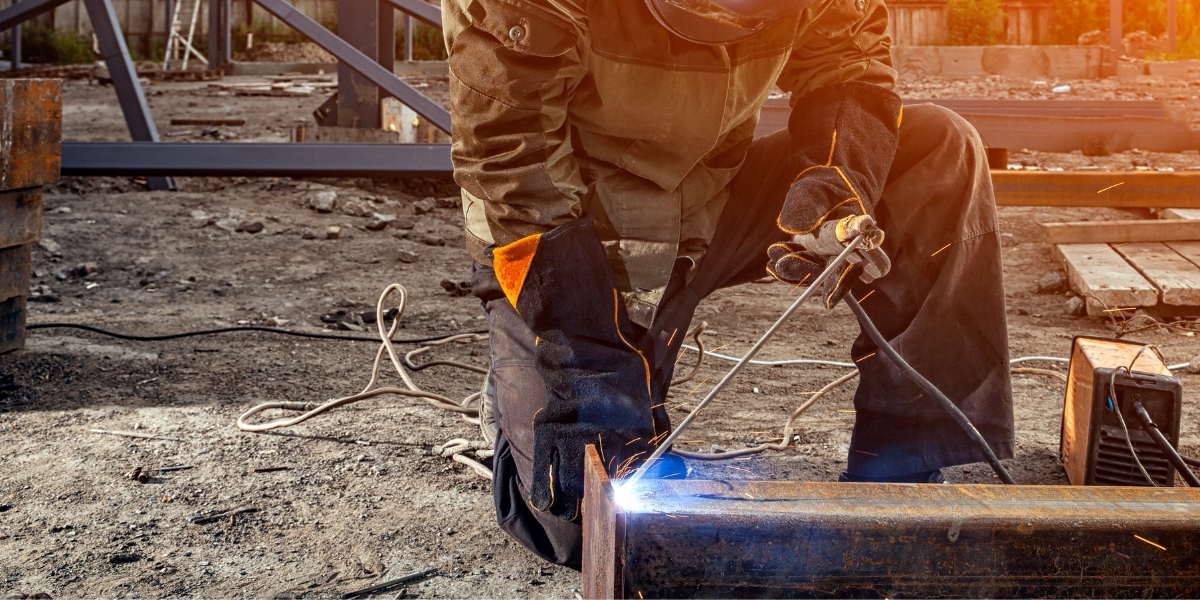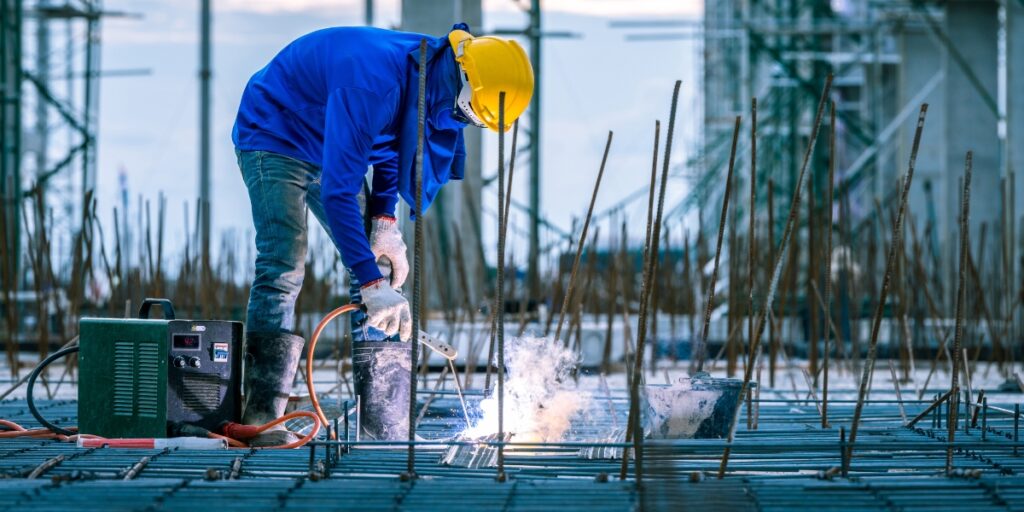Mobile welding has become an increasingly popular technique in construction projects, offering numerous advantages over traditional stationary welding methods. For instance, consider a hypothetical scenario where the construction site is located in a remote area with limited access to electricity and infrastructure.
In such cases, mobile welding equipment provides increased flexibility and accessibility by allowing welders to bring their tools directly to the work site.
This comprehensive guide explores the various benefits of mobile welding, including enhanced efficiency, cost-effectiveness, improved quality, and versatility for a wide range of applications in construction projects.
Key Takeaways
– Increased flexibility and accessibility on construction sites
– Enhanced efficiency and time savings in various industries
– Cost-effectiveness and reduced expenses
– Improved quality and precision in construction projects

Increased Flexibility and Accessibility
Increased flexibility and accessibility are notable advantages of mobile welding in construction projects.
Mobile welding allows for remote work, enabling welders to provide their services on-site without the need for transportation of materials or equipment. This eliminates the time and cost associated with transporting heavy machinery or components to a fixed location.
Additionally, mobile welding provides the convenience of on-site repairs, allowing immediate response to any welding needs that may arise during construction. This reduces project downtime and increases efficiency by eliminating the need to transport materials off-site for repairs.
The ability to bring welding services directly to the construction site enhances productivity and minimizes disruptions, ultimately resulting in cost savings and timely completion of projects.
Enhanced Efficiency and Time Savings
Enhanced efficiency and time savings can be achieved through the utilization of mobile welding techniques in various industries.
Mobile welding allows for increased productivity and streamlined processes, resulting in significant benefits for businesses. By bringing the welding process directly to the worksite, mobile welders eliminate the need for transportation of materials and equipment to a fixed location. This reduces downtime and eliminates potential delays caused by transportation logistics.
Additionally, mobile welding provides flexibility in scheduling as it allows for on-demand services and quick response times to urgent projects or repair needs. The ability to work directly on-site also minimizes interruptions caused by factors such as weather conditions or limited access to certain areas.
Overall, mobile welding offers a cost-effective solution that maximizes efficiency while saving time for industries across various sectors.
Cost-Effectiveness and Reduced Expenses
The utilization of mobile welding techniques in various industries can lead to cost-effectiveness and reduced expenses. One significant advantage is the potential for lower maintenance costs. Mobile welding allows for on-site repairs and modifications, eliminating the need to transport large structures or equipment to a separate welding facility. This reduces transportation costs and downtime associated with disassembling and reassembling components. Additionally, mobile welding enables quick response times for urgent repairs, minimizing production delays and maximizing productivity.
Furthermore, increased productivity is another key benefit of mobile welding. On-site welding services eliminate the need for off-site fabrication, reducing lead times and improving workflow efficiency. Welders equipped with portable tools can work directly at the construction site or manufacturing facility, eliminating the time-consuming process of transporting materials between locations. Moreover, mobile welders are often well-versed in various welding techniques and possess extensive experience working in diverse settings, allowing them to adapt quickly to different projects and complete tasks efficiently.
Improved Quality and Precision
One notable aspect of mobile welding is its ability to achieve precise and high-quality welds. Mobile welding services offer several advantages that contribute to improved quality and precision in construction projects:
– Access to skilled welders who are experienced in various welding techniques and can ensure accurate and well-executed welds.
– Availability of advanced welding equipment and technology, such as computerized systems, that enhance precision and consistency in the welding process.
– Flexibility to perform on-site inspections and adjustments, allowing for real-time monitoring of the welding quality.
– Implementation of improved safety measures, including proper ventilation systems, fire prevention protocols, and personal protective equipment (PPE) for welders.
– Utilization of specialized techniques like laser or robotic welding that offer higher precision and minimize human error.
Wide Range of Applications and Versatility
A wide range of applications and versatility are evident in the various industries that benefit from the implementation of mobile welding services. The portability and convenience offered by mobile welding make it an ideal solution for on-site repairs and modifications.
In construction projects, where time is of the essence, having a mobile welding service readily available can save both time and money. Mobile welders can easily transport their equipment to different locations, allowing them to perform necessary repairs or modifications without the need to transport large structures or machinery. This flexibility enables construction projects to continue smoothly, avoiding any delays caused by transportation logistics.
Additionally, mobile welding services can be utilized in various industries such as automotive, manufacturing, and infrastructure development, further highlighting their versatility and broad applications.

Frequently Asked Questions
What are the safety precautions that need to be taken while using mobile welding equipment in construction projects?
Safety precautions for using mobile welding equipment in construction projects include following proper training requirements, wearing appropriate personal protective equipment, ensuring a well-ventilated workspace, inspecting equipment regularly, and implementing fire prevention measures.
Are there any specific certifications or qualifications required for mobile welders in construction projects?
Certifications and qualifications are necessary for mobile welders in construction projects. Training ensures knowledge of safety precautions, limitations, challenges, equipment setup, maintenance requirements, and specialized techniques like underwater welding.
What are the limitations or challenges of using mobile welding in remote or hard-to-reach construction sites?
The limitations of mobile welding in remote construction sites include limited access to resources, difficulty in transporting equipment, and the need for skilled welders who can adapt to harsh environmental conditions. Challenges in hard-to-reach sites include logistical issues and potential safety hazards.
Can mobile welding be used for underwater welding in construction projects?
Underwater welding techniques have seen advancements in mobile welding technology, allowing for effective construction projects in challenging environments. These advancements enable precise and detailed work, ensuring the understanding of the audience seeking technical proficiency.
How does mobile welding compare to traditional stationary welding in terms of equipment setup and maintenance requirements?
Mobile welding is more efficient and cost-effective compared to traditional stationary welding in terms of equipment setup and maintenance requirements. It allows for greater flexibility, reduces downtime, and eliminates the need for transporting heavy materials to a fixed location.

